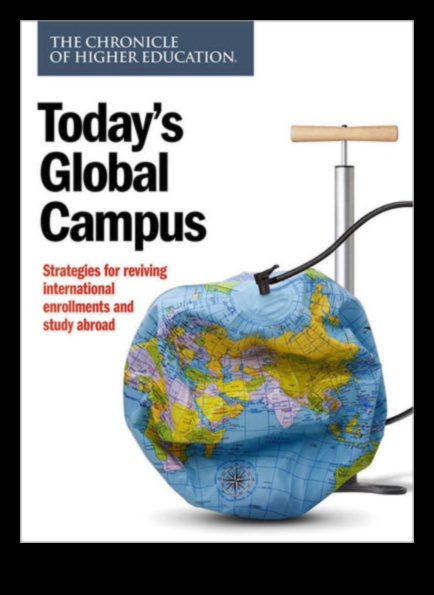
Global Campuses: Exploring Universities Around the World
Global campuses are universities that offer programs in multiple countries or campuses in different countries. They provide students with the opportunity to study in a variety of cultures and learn about different perspectives.
There are many benefits to attending a global campus, including:
- The opportunity to study in a different country
- The chance to learn about different cultures
- The opportunity to meet new people from all over the world
- The chance to develop a global perspective
There are also a few things to consider when choosing a global campus, including:
- The cost of tuition
- The admission requirements
- The living and learning experience
- The career prospects for graduates
If you are interested in attending a global campus, there are a few resources that can help you find the right one for you.
Global campuses offer a unique and exciting opportunity to study in a different country and learn about different cultures. If you are considering studying abroad, a global campus may be the perfect option for you.
| Feature | Global Campuses | International Universities | Study Abroad | World Universities | Higher Education |
|---|---|---|---|---|---|
| Definition | Universities that offer programs in multiple countries or campuses in different countries | Universities that offer programs in multiple countries | Studying at a university in a country other than your home country | Universities that have campuses in multiple countries | Education that is provided by a university |
| Benefits | Opportunity to study in different cultures, learn different languages, and experience different ways of life | Opportunity to study in different cultures, learn different languages, and experience different ways of life | Opportunity to immerse yourself in a new culture, learn a new language, and make new friends | Access to a wider range of courses and programs | Opportunity to earn a degree from a prestigious university |
| Drawbacks | Can be more expensive than studying at a domestic university | Can be more expensive than studying at a domestic university | Can be more difficult to adjust to a new culture and way of life | May be more difficult to get into a world university | May be more difficult to get into a higher education institution |
| Examples | New York University (NYU), University of California, Berkeley (UC Berkeley), and University of Toronto | Sorbonne University, University of Cambridge, and University of Oxford | IES Abroad, EF Education First, and Study abroad.com | University of London, University of Hong Kong, and Peking University | Harvard University, Stanford University, and Massachusetts Institute of Technology (MIT) |

II. Benefits of global campuses
There are many benefits to attending a global campus, including:
- The opportunity to study in a different country and experience a new culture
- The chance to learn from a diverse group of students and faculty
- The opportunity to earn a degree that is recognized internationally
- The ability to build a global network of connections
Global campuses also offer a number of unique academic programs that are not available at traditional universities. For example, students at global campuses may be able to take courses in international law, global business, or sustainability.
Overall, global campuses offer a unique and enriching educational experience that can help students prepare for a globalized world.
III. Types of global campuses
There are many different types of global campuses, each with its own unique benefits and drawbacks. Some of the most common types of global campuses include:
- Tier 1 global campuses: These are typically located in major cities and offer a wide range of academic programs. They are often affiliated with top-tier universities and attract students from all over the world.
- Tier 2 global campuses: These are typically located in smaller cities or towns and offer a more limited range of academic programs. They are often affiliated with mid-tier universities and attract students from a more regional or national pool.
- Tier 3 global campuses: These are typically located in remote areas or developing countries and offer a very limited range of academic programs. They are often affiliated with smaller universities and attract students who are interested in studying in a specific region or country.
The type of global campus that is right for you will depend on your individual needs and preferences. If you are looking for a wide range of academic programs and a diverse student body, then a Tier 1 global campus may be a good option for you. If you are looking for a more intimate learning environment and a closer connection with your professors, then a Tier 2 or Tier 3 global campus may be a better fit.

IV. Choosing a global campus
There are many factors to consider when choosing a global campus, including the location of the campus, the programs offered, the cost of tuition, and the living and learning environment.
The location of the campus is an important consideration, as it will affect the cost of living, the climate, and the cultural environment. If you are interested in studying in a particular country or region, it is important to choose a campus that is located in that area.
The programs offered by a global campus are also an important consideration. Make sure that the campus offers programs that are relevant to your interests and career goals. You should also consider the level of the programs offered, as some campuses offer undergraduate programs, while others offer graduate programs.
The cost of tuition is another important factor to consider. The cost of tuition at global campuses can vary significantly, so it is important to do your research and compare the costs of different campuses. You should also consider the cost of living, as this can add significantly to the overall cost of attending a global campus.
The living and learning environment at a global campus is also an important consideration. Make sure that the campus has a vibrant student community and that you will feel comfortable living and learning in that environment.
Once you have considered all of these factors, you can begin to narrow down your choices and choose the global campus that is the best fit for you.

V. The cost of attending a global campus
The cost of attending a global campus can vary significantly depending on the university, the program, and the location of the campus. In general, students can expect to pay more to attend a global campus than they would to attend a traditional university in their home country. However, there are often financial aid opportunities available for students who qualify.
Some of the factors that can affect the cost of attending a global campus include:
- The tuition and fees charged by the university
- The cost of living in the city where the campus is located
- The cost of travel to and from the campus
- The cost of health insurance
- The cost of books and supplies
Students should carefully research the cost of attending a global campus before making a decision about where to study. They should also consider their financial aid options and make sure that they are eligible for any scholarships or grants that may be available.
For more information on the cost of attending a global campus, students should contact the financial aid office at the university they are interested in attending.

IX. The career prospects for graduates of global campuses
Graduates of global campuses have a variety of career prospects available to them. They may choose to work in a variety of industries, including:
* Business
* Education
* Government
* Non-profit organizations
* Technology
* Healthcare
* Law
* Social work
* Media
* Arts and culture
The skills that graduates of global campuses develop are highly sought-after by employers. These skills include:
* Critical thinking
* Problem-solving
* Communication
* Teamwork
* Leadership
* Cultural awareness
* Global perspective
Graduates of global campuses are well-prepared for the global workforce. They are able to work effectively in a variety of cultures and environments. They are also able to think critically and solve problems. These skills make them valuable assets to any organization.
In addition to the skills that they develop, graduates of global campuses also have a unique perspective on the world. They have lived and studied in different countries, and they have come to understand different cultures. This perspective can be a valuable asset in any workplace.
Overall, graduates of global campuses have a variety of career prospects available to them. They are well-prepared for the global workforce and have the skills and experience that employers are looking for.
VII. The admissions requirements for global campuses
The admissions requirements for global campuses vary depending on the institution. However, some common requirements include:
- A high school diploma or equivalent
- SAT or ACT scores
- Applicants from outside the United States may also need to provide TOEFL or IELTS scores
- Applicants may also need to submit a personal statement, letters of recommendation, and a resume
It is important to note that some global campuses have more competitive admissions processes than others. For example, the University of Cambridge’s Global Campus has a higher acceptance rate than its main campus in the United Kingdom.
Students who are interested in attending a global campus should research the admissions requirements for each institution they are considering. They should also make sure to meet the deadlines for submitting applications.
The living and learning experience at global campuses
The living and learning experience at global campuses can vary significantly depending on the specific campus and program. However, there are some general themes that are common to most global campuses.
One of the most striking things about global campuses is the diversity of the student body. Students come from all over the world, and this creates a vibrant and cosmopolitan atmosphere. Students have the opportunity to learn about different cultures and perspectives, and they can develop a global understanding of the world.
Another unique aspect of global campuses is the opportunity to study in different countries. Students may spend their first year at one campus and then transfer to another campus in a different country. This allows students to experience different cultures and educational systems.
Global campuses also offer a variety of extracurricular activities and opportunities for students to get involved. Students can join student clubs and organizations, participate in sports, or volunteer in the community. This helps students to develop their leadership skills and to become more engaged in the world around them.
Overall, the living and learning experience at global campuses can be an enriching and rewarding experience. Students have the opportunity to learn about different cultures, to develop a global perspective, and to become more engaged in the world around them.
IX. The career prospects for graduates of global campuses
Graduates of global campuses have a wide range of career prospects available to them. They may choose to work in a variety of industries, including international business, education, and government. They may also choose to pursue a career in research or academia.
The skills that graduates of global campuses develop are highly valued by employers. These skills include intercultural communication, critical thinking, and problem-solving. Graduates of global campuses are also more likely to be fluent in multiple languages.
A study by the Association of American Colleges and Universities found that graduates of global campuses earn more money than their peers who did not attend a global campus. They are also more likely to be promoted to leadership positions.
If you are considering attending a global campus, you should be aware of the potential career benefits. A global campus can provide you with the skills and experience you need to succeed in a global economy.
X. FAQ
Q: What are the benefits of attending a global campus?
A: There are many benefits to attending a global campus, including:
* The opportunity to study in a different country and experience a new culture.
* The chance to learn from a diverse group of students from all over the world.
* The opportunity to earn a degree from a prestigious university.
* The ability to build a global network of friends and colleagues.
Q: What are the different types of global campuses?
A: There are three main types of global campuses:
Affiliated campuses: These are campuses that are owned and operated by a single university, but are located in different countries.
Partnership campuses: These are campuses that are jointly owned and operated by two or more universities.
Independent campuses: These are campuses that are owned and operated by a private company or organization.
Q: How do I choose a global campus?
A: There are a few things to consider when choosing a global campus, including:
* The program you want to study.
* The location of the campus.
* The cost of tuition and fees.
* The admissions requirements.
* The living and learning environment.